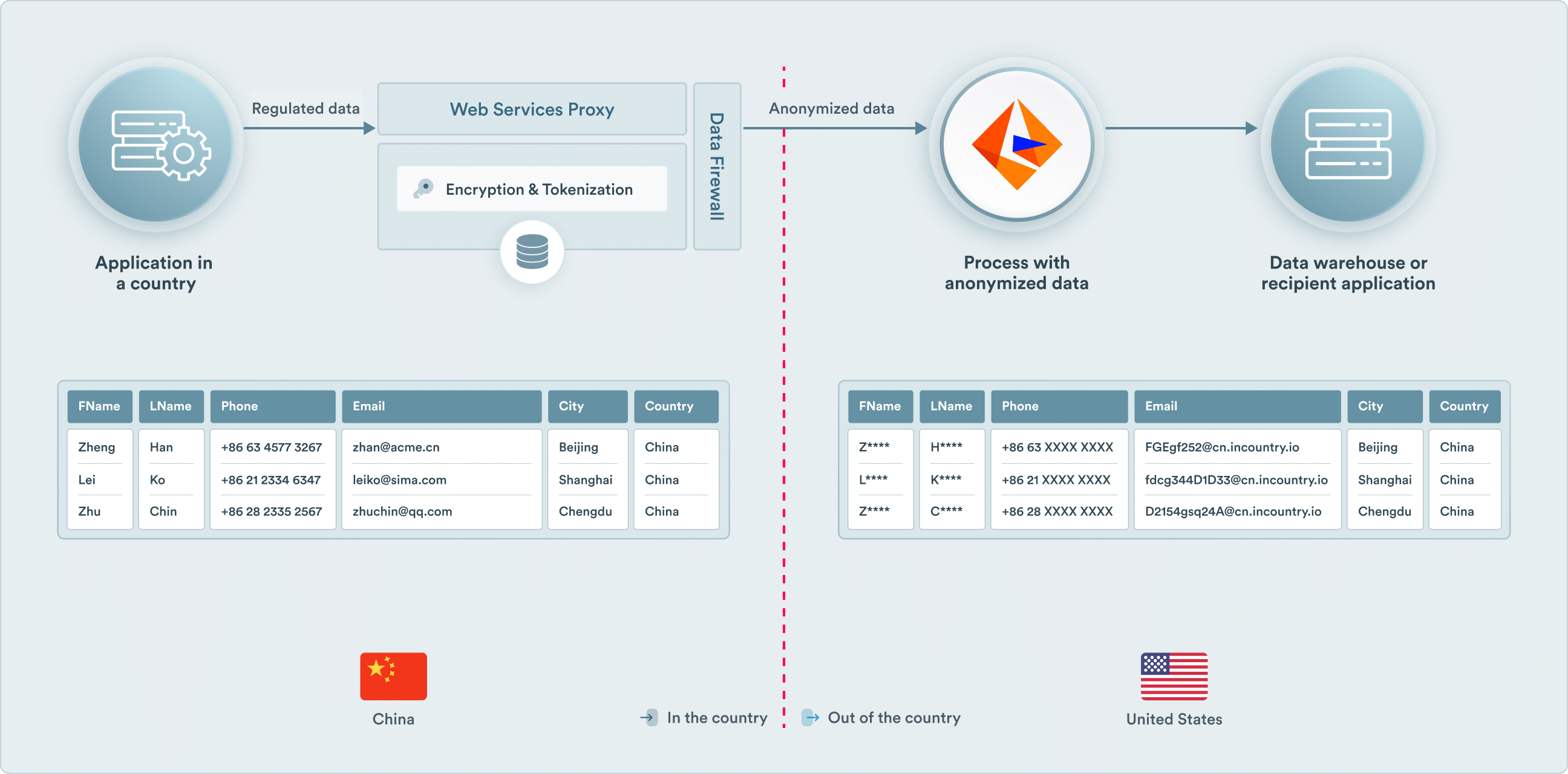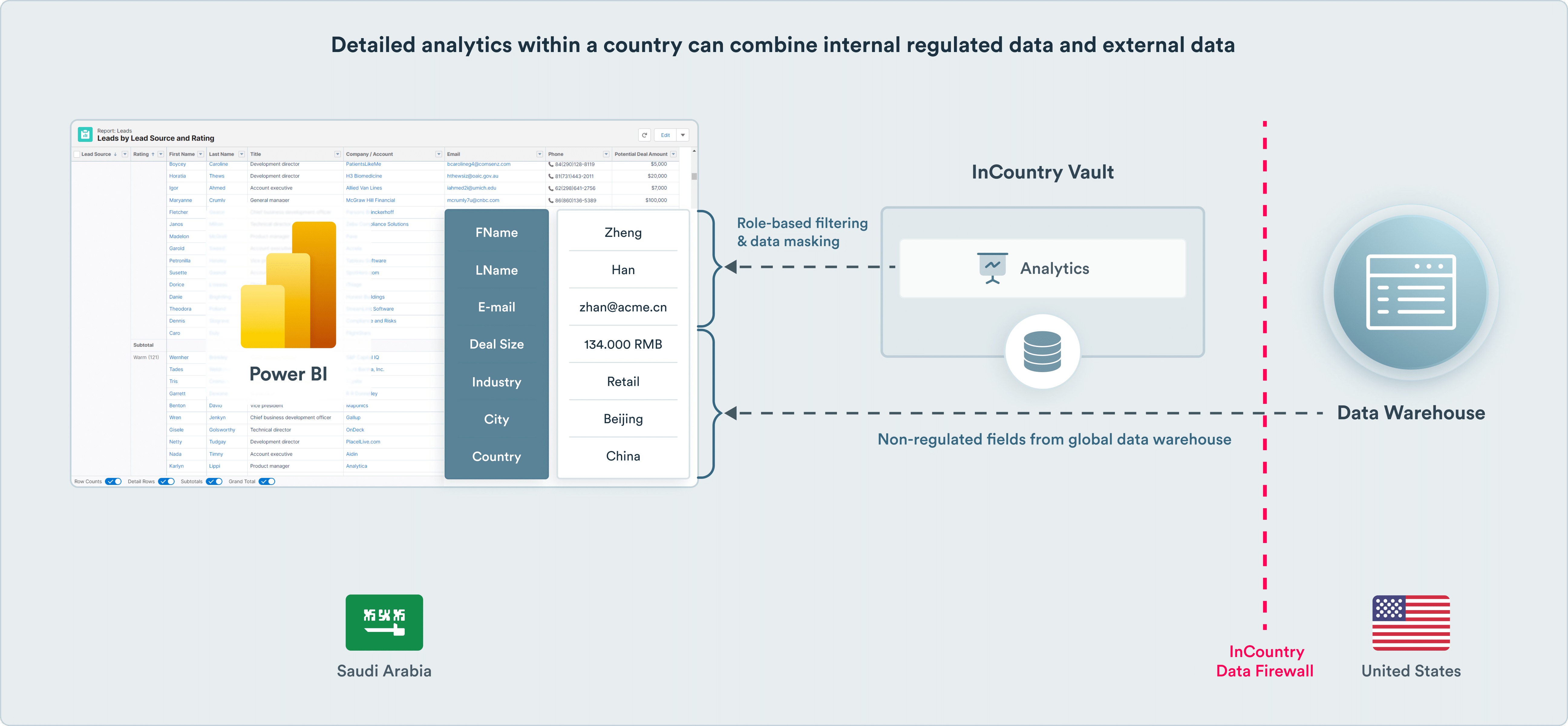
Data Residency for Informatica
Redact and anonymize regulated data from Informatica pipelines

Process worldwide data while maintaining local compliance
Ensure worldwide scalability of data integration while maintaining the segregation of regulated data from Informatica pipelines. Maintain the isolation of regulated data from central data repositories, allowing for the continual acquisition of global insights, and enable local analytics by integrating local regulated data with global datasets.
Informatica with InCountry
InCountry seamlessly integrates with Informatica’s data integration, ETL, and data mapping capabilities to facilitate the descope of regulated data during cross-border transfers. By utilizing InCountry’s in-country web services proxy when accessing data from APIs or files in regulated jurisdictions, regulated fields are concealed and replaced with anonymized values on-the-fly.
- The platform seamlessly integrates with existing API integrations and file imports
- Dynamically redacting regulated fields
- Anonymizing data through customizable tokenization, hashing, and masking algorithms
- Full audit log

Facilitate the deployment of analytics and applications across both local and global domains.
- Uphold the functionality of global business intelligence and reporting tools while guaranteeing full masking of regulated data.
- Empower local users to create dashboards and reports using locally sourced regulated data and data retrieved from global warehouses and data lakes.
- Implement tailored access policies for distinct user groups and applications, incorporating query filters, field-level access controls, field masks, and CRUD controls.

InCountry Data Residency for Informatica
Features
- Direct integration with Informatica
- No changes to pipelines or workflows
- Flexible tokenization, hashing, and masking algorithms
Benefits
- Compliance with cross-border data transfer regulations
- Descope ETL, data warehouses, and data lakes from regulated data processing
- Fast setup and time-to-market
How it Works
Identify API requests that pull regulated data across borders
Use the InCountry web services proxy in that country to redact and anonymize regulated data
Continue to use existing pipelines
Perform local analytics by combining local regulated data with global data
